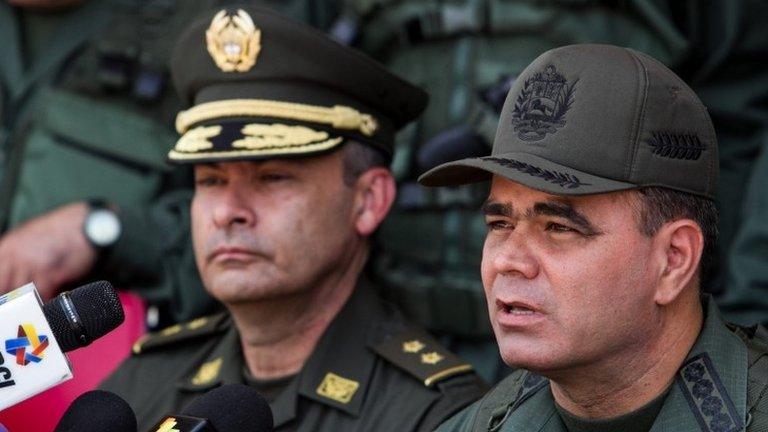Anger as Venezuela border remains closed despite talks
- Published
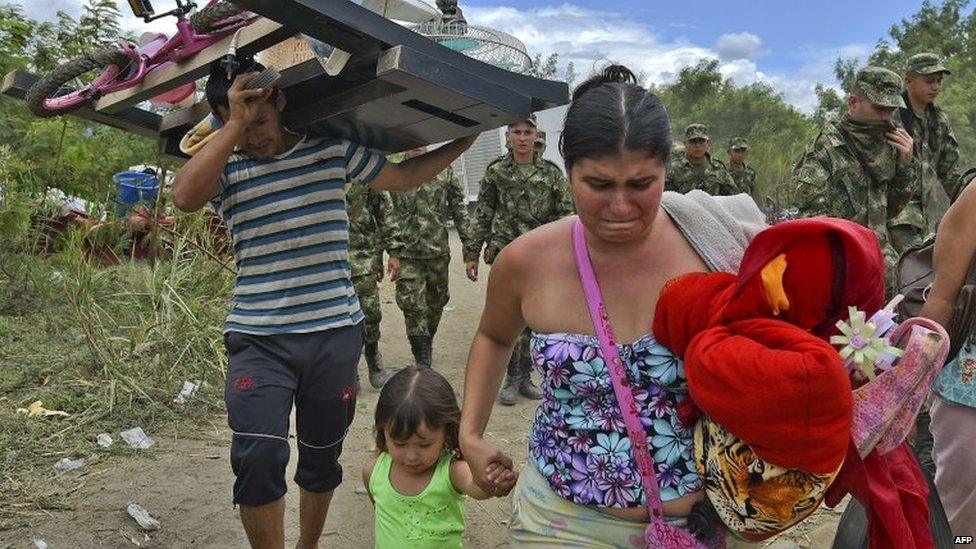
Thousands of Colombians who were living in Venezuela have crossed back into Colombia
Venezuela says a key border crossing with Colombia will remain closed.
The announcement follows talks by the two countries' foreign ministers on Wednesday aimed at normalising the situation in the border region.
Venezuelan President Nicolas Maduro ordered the closure last week after smugglers injured three Venezuelan soldiers and a civilian.
He also announced that Colombians living illegally in Venezuela would be deported.
Since then, more than 1,000 Colombians have been removed.
Another 5,000 are thought to have left by crossing the River Tachira, which separates the two countries.
Staying shut
The two foreign ministers said they had taken a first step towards normalising relations.
Colombian migrant in Venezuela: "Maduro is throwing us out like dogs"
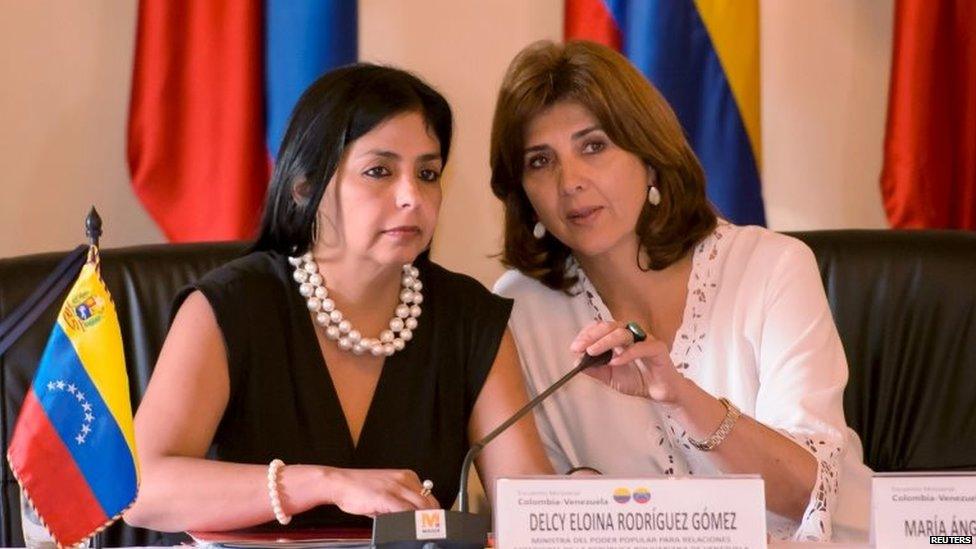
Delcy Rodriguez (left) and Maria Angela Holguin said they had had a "productive" meeting but the border remains closed
"We're satisfied with this meeting and we're going to continue taking steps firmly and with unity and in the spirit of friendship and co-operation," Venezuelan Foreign Minister Delcy Rodriguez said.
However, she did not accede to her Colombian counterpart's request to open the border crossing near the north-eastern city of Cucuta.
Colombian Foreign Minister Maria Angela Holguin said many Colombians were engaged in legitimate business in Venezuela and could not work unless the border was reopened.
The two sides said their defence ministers would meet in the coming days.
Colombian President Juan Manuel Santos travelled to Cucuta on Wednesday to speak to some of the deportees.
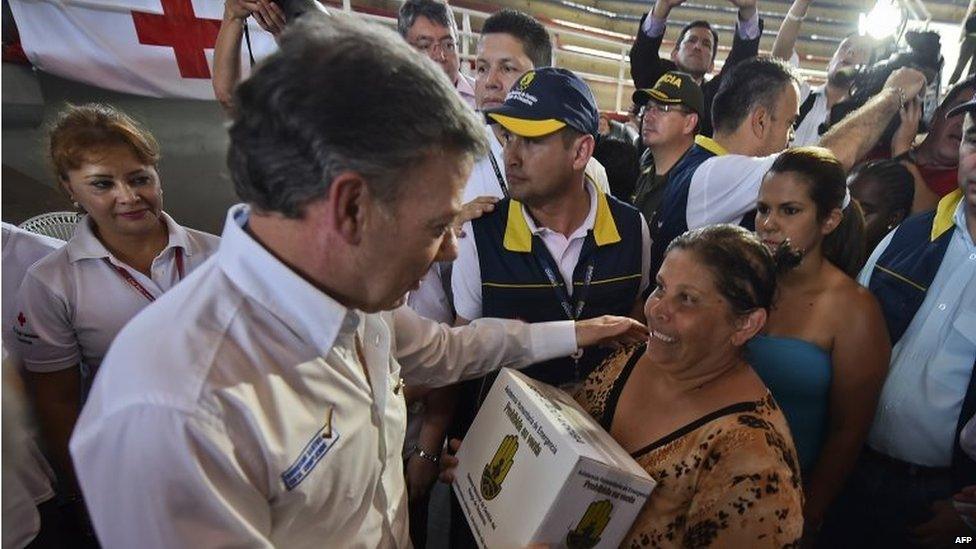
Colombian President Juan Manuel Santos visited a shelter in Cucuta
Hundreds are living in shelters in Cucuta surrounded by the few possessions they could carry across the border on their backs.

At the scene: Natalio Cosoy, BBC Mundo, at a shelter in Cucuta
A small TV set was turned on in the shelter set up in the Coliseo Cucuta, a sports ground in the town centre.
Last night, some 40 people sat around it, watching the evening news.
They were watching the news coverage of their own drama, nodding or shaking their heads depending on what was shown.
Two-hundred-and-nineteen people were given shelter here after they were deported from Venezuela; their houses now empty on the other side of the border, some demolished by the Venezuelan authorities.
Food and clothing are in good supply but this is only a temporary solution. People here are worried about where they will go when the shelter closes.

Smugglers' haven
The border region around Cucuta is a haven for smugglers who buy subsidised goods in Venezuela and sell them at a profit in Colombia.
A number of criminal gangs are also operating in the area.
Some of them are the remnants of paramilitary groups originally created to fight Colombia's left-wing Farc rebels.

President Maduro blames much of the violence on the Venezuelan side of the border on Colombian paramilitaries, whom he accuses of crossing the border freely to commit crimes.
In order to fight these gangs he declared a 60-day state of emergency on Friday which, among other things, allows the authorities to search homes without a warrant.
But his Colombian counterpart said those who had been deported were "no paramilitaries but poor and humble families who only want to live and work".
President Santos said some had complained of mistreatment by the Venezuelan security forces, saying some parents had been forcibly separated from their children.
"The way in which many Colombians have been expelled from Venezuelan territory is unacceptable," he warned.
But the Venezuelan foreign minister dismissed allegations of mistreatment as "media lies".
- Published26 August 2015
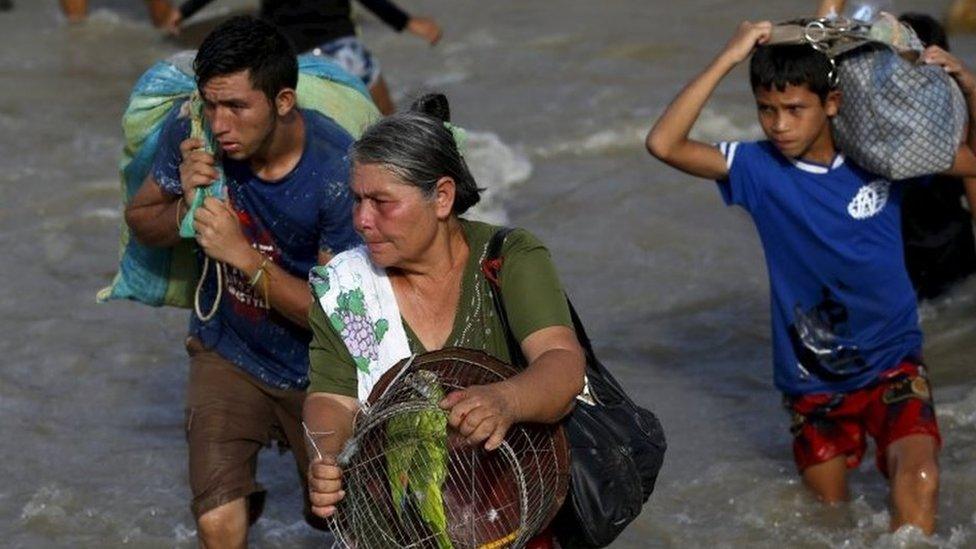
- Published25 August 2015
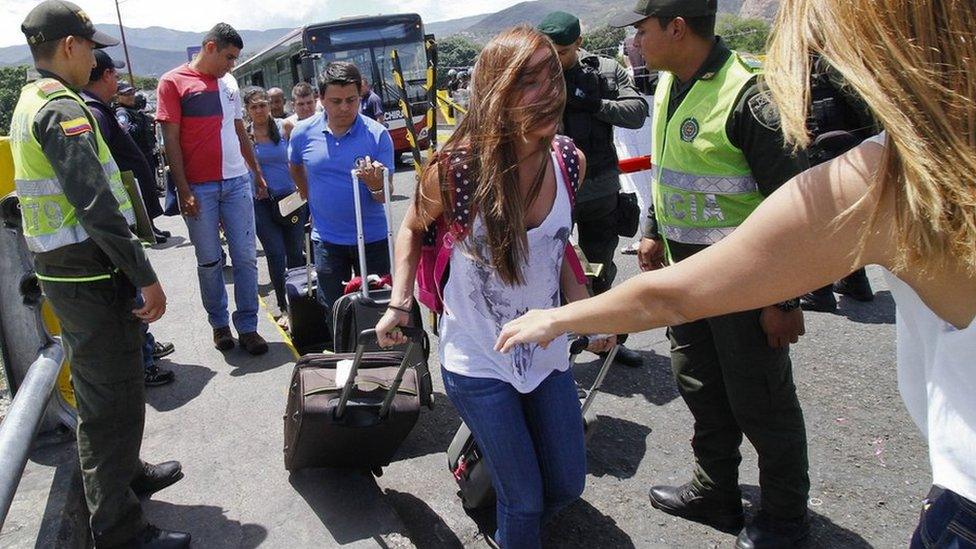
- Published12 August 2014
